Roundtable: The Traitor Baru Cormorant
Words by A. M. Bueman
Seth Dickinson’s debut novel The Traitor Baru Cormorant is a favourite among Meridian Australis members. When given the opportunity to wax lyrical about the book, Arden, Dom and Kaz all came together to discuss the work on our Roundtable.
Kaz captured some of our thoughts, in a far more articulate fashion, in this exploration of what makes The Traitor Baru Cormorant such a beautiful book.
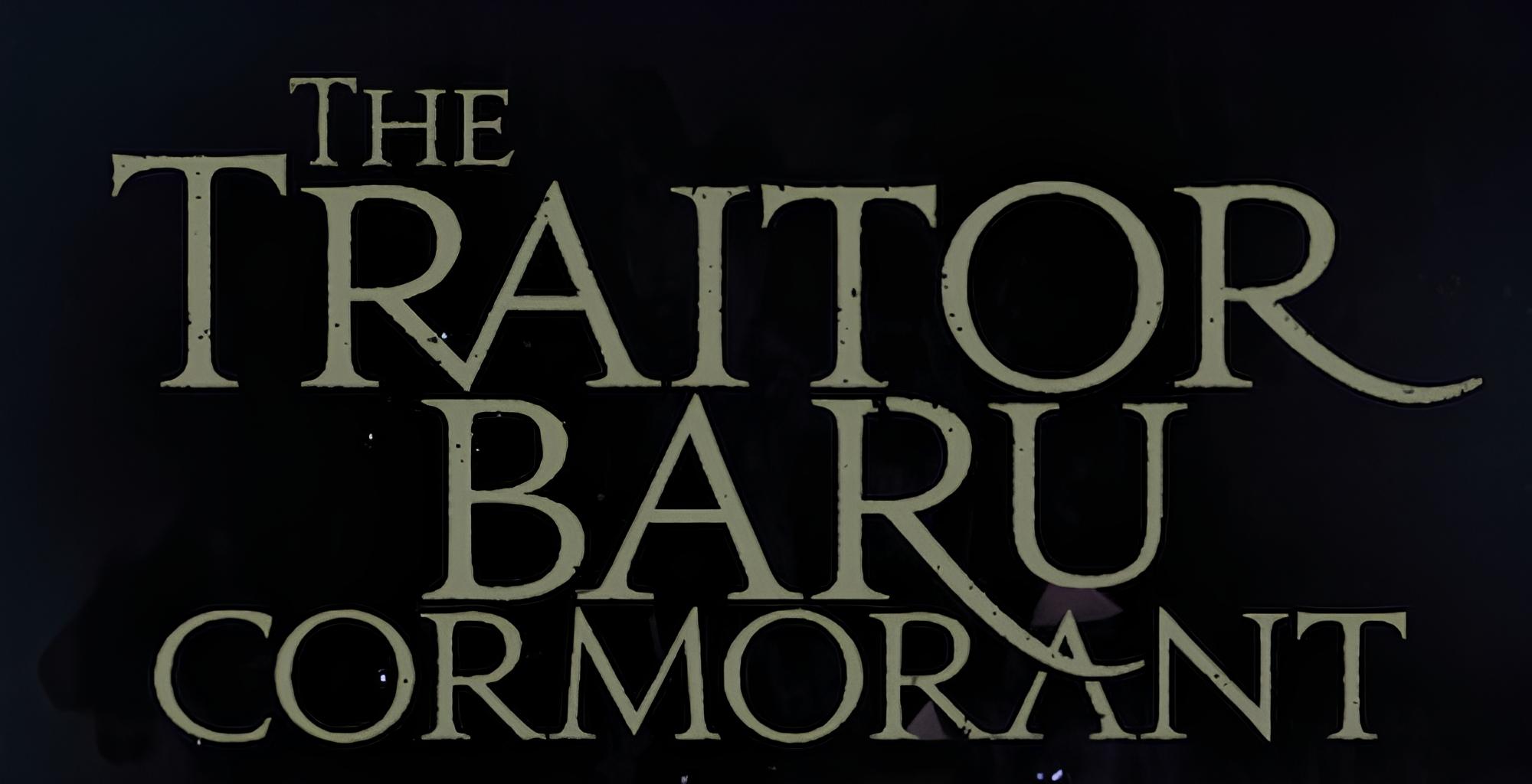
By god, this book.
I wasn’t feeling the headspace for a book this tragic – but it turned out alright. Besides that – this book is devastating. Everything about it, but especially the ending. On my first read-through, I didn’t understand the foreshadowing, but on this read-through I absolutely did, and it was heart-wrenching.
A Few Criticisms
The whole pace of the novel is quick; the rebellion unfolds so quickly, in a few masterstrokes. I do think there is something to criticise here; the latter half of the book happens so quickly, with little time for reflection, but in my reading this sense of falling, of rolling downhill too fast to stop, inevitable, is a very powerful thing for this story. The declaration of Erebog, in particular, I love; half a page of events, and like a puzzle coming together, Baru’s plan unfolds.
She had already purged her land of the disloyal. Starvation bayed at her door.
Old Erebog declared for the rebellion.(241)
Another criticism is the parade of names and characters; we have Baru Cormorant of Taranoke, now Sousward, Baru Fisher, the Fairer Hand, the Imperial Accountant, a Taranoki woman, a Souswardi woman, a speaker of Urunoki. We have Tain Hu of Aurdwynn, Duchess Vultjag, Duchess of Comets, who speaks the Iolynic creole and Maia Urun, and perhaps some of the native Belthyc. We have Falcrest, the Imperial Republic, the Masquerade, the Empire of Masks, whose language is Aphalone. These few people, I remember – but even on my second read-through, I get tangled up in the Dukes and their various names, in Treatymont/Lachta and Xate Olake. I did not flick to the map at the front, but it would have been useful to!
Prose
The prose, as well – Dickinson’s prose is stunning. His descriptions are vivid, evocative, lithe twists of wordplay and astonishing beauty, capturing in one pen-stroke an atmosphere, a scene, an image. When his writing bleeds into the melodramatic, it is only more powerful.
Behold Sieroch:
The Wolf phalanx. Spearmen out of five duchies and two nations guarded by their neighbours' shields. Wreathed in smoke. Wading through beloved dead. Banners burnt away by hwacha-shot. Rising, now, under the only colors left to them, the only fire still their friend.
Evening light on twenty thousand spears.(357)
She had always loved the stars. But in the desert of winter it was impossible to forget that they were cold, and distant, and did not care.
(257)
Characters
The power of the characters, their humour, their humanity. Each of the Dukes and Duchesses sweep onto the page with charisma and personality to spare; Unuxekome with his dreams of heroism, the old philosopher fox Lyxaxu, the clever Xate Olake, gallant Oathsfire, wise Erebog, brave Nayauru, and of course, the brigand bitch – the fierce Tain Hu. The introduction of Oathsfire and Lyxaxu endears us to them in a few spare lines:
"Oathsfire, Duke of Mills, at your service. I hope you've enjoyed my home in the city. I paid for it in spite of your best efforts."
...
"I am Lyxaxu, Duke High Stone, Vultjag's westerly and more mannered neighbour."
...
"Baru found them immediately exasperating, and resolved not to be charmed."(190)
Likewise, Erebog and Ihuake’s bickering – which continues up to the bitter end;
“You sound like a grandmother.”
“I am.”
“Like a grandmother with a lot of stupid, poor children.”(319)
“I used you to kill Nayauru and take everything I wanted. I am fed now. Keep me sated, lest I grow hungry again."
Erebog rolled her eyes. “Listen to yourself. You sound like a milk cow, lowing for blood and land. At least Nayauru had a vision.”
“I want exactly what Nayauru wanted . . . I want to make a new empire for my people. I want to reclaim my blood and history from the interloper out of Falcrest. I differ from Nayauru in one great respect: she is dead, I am ascendant, and my children are going to fuck her name out of every song and book of noble lineage.”(321)
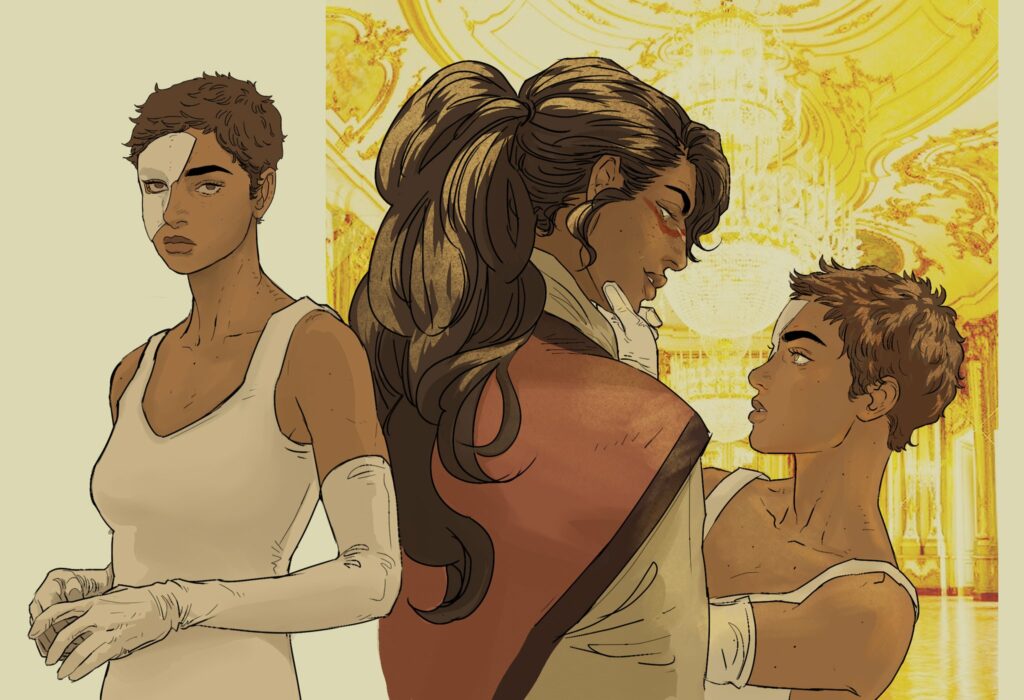
Gender
There is also a through-line of gender, not as foregrounded perhaps as the Imperialist critique, but not less powerful for it; “Be careful . . . You have earned respect. But there are no men in Aurdwynn who can respect what they desire.” (Tain Hu, 265). The pursuit of Baru’s hand (and womb) for the rebellion, and Baru’s constant resistance to the idea of wielding her body for her goals – wielding her body for her goals – utterly unlike Mara in Daughter of the Empire, but no less powerful for it. In her refusal to take advantage of what is so commonly termed ‘feminine power’, Baru resists the archetype of female political actor so common to the genre and to culture more broadly, while at the same time cementing the core of her character, the line she will not cross, the self she will not, cannot deny. But even as Baru resists, the world and people around her continue to push. Misogyny and patriarchy are, in Dickinson’s novel as in real life, systemic; escaping them not so simple, nor so easy, as refusing to participate.
“There are other women here. They are not all mistreated . . .
“Go to one of those women,” Tain Hu said, “and ask her how she was spoken of when she left her lover, or took a second, or never had one at all.”
“I have made brothers of these men. Not lovers.”
. . . “You have been given a permit of brotherhood, Baru Fisher, and you have no say in when they will revoke it, or why. . . . I learned that from Oathsfire, too.”(266)
“You must appear a master . . . They would forgive an Aurdwynni a missed shot, forgive a man who struggled to string. But never you. Your errors will be written on your blood and your sex. You must be flawless.”
(Tain Hu, 259)
Beside and above the Aurdwynni desire for lover, Queen, and heir, Baru resists the siren song of Incrasticism, that calls her to sleep with a man to prove she is not a tribadist. Even when it makes her political goals harder to achieve, ruthless, pragmatic Baru cannot bring herself to weaponise her body and sexuality. In this as in nothing else, Baru is true to herself. In a novel where Baru’s goals so often triumph over her ideals, it is here that the depth and strength of Baru as a character becomes apparent.
Baru's Weakness
And of course, one of my favourite elements of the novel – Baru is an accountant, a savant, a mathematician, a genius of numbers and strategy. But this is her weakness, too. Her greatest flaw is that she believes she is the only player on the board – and her second greatest, her ignorance of other peoples’ motivations, motivations that extend beyond anything numbers or military might or strategy can account for.
"I don't think it matters. We whisper about Nayauru, but the whispers lead us astray."
"Tell me your great theory, O sage."
"Nothing so sagacious . . . Only that she loves them, and they love her. That is what we miss."(Lyxaxu and Erebog, 280)
Baru fails to win Nayauru because the Duchess Nayauru judges her on her morality, on her heart, rather than her army. There is another kind of power, one that Baru often forgets – and that Dickinson never allows her to.
"War has never spared the innocent."
"No . . . But neither has it pretended to love them. I will never give my people to Baru Fisher, who conjures power out of lies."(Nayauru and Lyxaxu, 292)
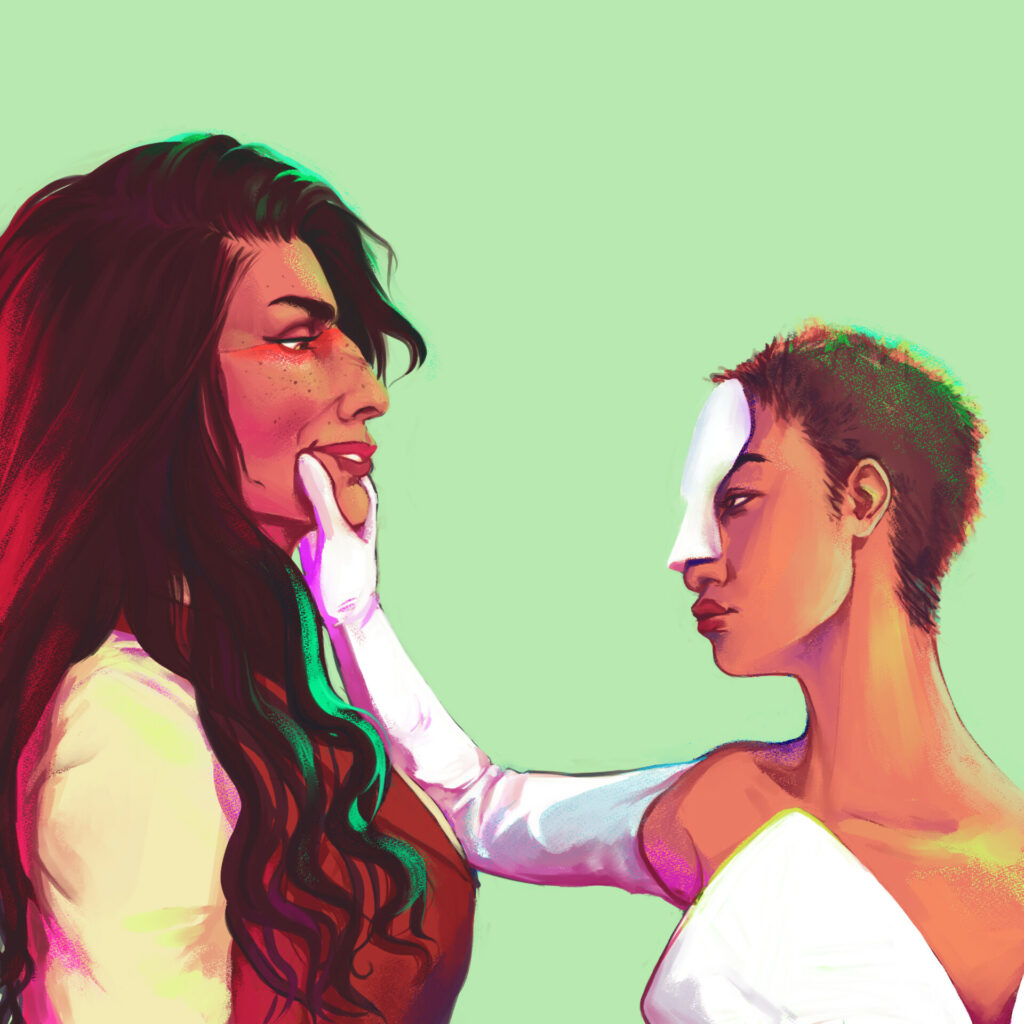
“You are worth a legion to me.”
Art credit Rebecca Smith
Worldbuilding
And the worldbuilding, the worldbuilding! I adore this worldbuilding. This is the book that really challenges the conception of Fantasy as that which involves the fantastical; The Traitor Baru Cormorant so clearly belongs in the same genre as Lord of the Rings, as Daughter of the Empire, as Game of Thrones, as Witch King, but features no magic whatsoever. This is the world of the near or distant past, a world with fireworks and rockets, but without guns, a world where wars take place on battlefields, on horseback, with spears and shields and swords, but unlike the mediaeval European settings so common to this genre, the world of Baru Cormorant is rich with African and Pacific Islander culture, but without any one clear parallel. From Taranoke, the islander culture, to the African-sounding Oriati Mbo, to the masked Imperial Republic of Falcrest, and lastly to the strange land of Aurdwynn, where pale Stakhi and the ancient, brown-skinned empire of the Tu Maia once clashed, where Duchies abound in wolves and coyotes and snow-bound winters, each culture establishes itself quickly and unerringly, distinct from each other and from any clear metaphor for real-world culture.
This is a fantastic achievement, mirroring the real-world dynamics of imperialism and colonialism so closely, but without solidifying into pure analogy. Like the Saredi in Martha Wells’ Witch King, the Taranoke we are shown at the beginning of Baru Cormorant and in Baru’s recollection, a peaceful, plentiful land, with strong networks of community and family, is recalled by other characters in distorted, racist narratives of “warm winters and easy women” (70) with a “reputation” (161) for licentiousness, where in Baru’s memory “Child rearing on Taranoke had been safe, communal, full of fathers and warmth.” (71). This device in Witch King, the game of telephone played with racism and colonialist narratives of savagery while the survivor and the reader stands by together and remember the truth—perfect, excellent.
There’s also a nod to linguistics, which I adore; mentions of linguistic features not obvious in the English text, like Aphalone’s singular you (102), are a shadow of the linguistic powerhouse that is Ancillary Justice. The reversal of Aurdwynn name order, Tain Hu and Tain Ko, Heingyl Stag-Hunter and his daughter, Heingyl Ri. The references to Urunoki as a descendent of Urun, the language of the Tu Maia empire; the fact that Iolynic is a creole of that same Maia Urun and the Stakhi language.
Empire and Incrasticism
This book – and the series it belongs to – are less a fantasy than a treatise on empire. As a novel, it is an achievement; as a political thesis, it is a masterpiece.
Dickinson powerfully juxtaposes of the wonders of Falcresti rule – roads, schools, inoculation – with its brutality; Incrastic discipline. Hot iron for the sodomite, and for tribadists, the knife. The awful, horrific two-word punch of ‘reparatory childbearing’. “Save them? Even from the new sewers? From the inoculations and the futures contracts?” (Tain Hu, 189).
“How grateful we must be,” her mother said, that childhood voice, that vein of utter unquestioned truth. “To have soap and sanitation. To watch our children survive and grow and learn all the names of sin. How fulfilling our lives must be, now that we labor for a greater purpose. Did you know that we died of tooth abscess, child? It was very nearly the foremost cause of death. How grateful we must be for dentists.”
Baru watched it all and with an accountant’s mind made a table of the credits and the debits, a double-entry ledger, hot iron for the sodomites against soap and dentists and a greater purpose.(369)
I remember making lists of pros and cons, in my middle school humanities class, to the Spanish conquest of the Americas. They looked a lot like this. But here, in Dickinson’s rendition, with the agonising irony behind it, it becomes clear how false this comparison is. It is clear that Baru the savant, with her accountant’s ledgers, is not approaching this problem in the right way. These things cannot be compared, weighed against each other like the wonders could erase the horrors if only they were wondrous enough. Although Dickinson, in the later novels of the series, explores this argument further – demonstrating the inseparability of wonder from horror, and linking both back to a single, colonialist impulse – but even in this first novel, the argument, and the power of it, are clear.
The running refrain of this book, the argument against all of the might of Falcrest, is in Baru herself – the daughter of a huntress and a blacksmith and a shield-bearer. The slow corruption of her by the empire, so obvious to the reader, so inescapable to her. When young Baru asks whether Salm – vanished on expedition with Falcresti soldiers – was her real father, or only a sodomite; the horror of it, the tragedy.
. . . and there in her first class on Scientific Society and Incrasticism she learned the word sodomite and tribadist and social crime and sanitary inheritance.
(25)
And the resistance, the refrain, the return to love:
"Men used to marry men . . . And women once took wives. It was done by the poor, the starving, the desperate, by those who needed a business pact or a shared roof. By soldiers on campaign with no one else to turn to. Mostly it was done by those without needs or troubles - done for love. The words tribadist and sodomite, the things they mean and define, came later. Before those words there were only people."
(Tain Hu, 263)
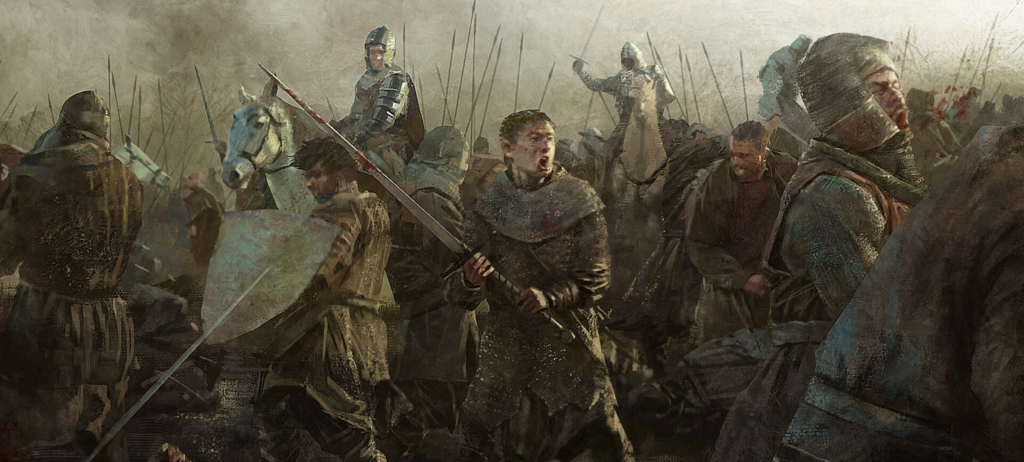
The Horror of War
There’s also a treatise on war, here; in this tale of glorious, grand rebellion, Dickinson does not shy away from crimes against humanity, and the horrors of war. The massacre in Imadyff, driven by scurvy and starvation, is one small incident in the rapid unfolding of the rebellion, related only after the fact, seemingly an inevitable consequence of an army on the march in civilian territory. And this massacre, we learn later, is what sides Nayauru against the rebellion. The horrors of armies, of military action, are lavished in terrible detail by Dickinson’s prose, which snaps through military action to visceral description.
Sickness and madness struck with the cold. Men died trembling of scurvy or drew choleric water from fouled wells and froze in pools of their own bowel. They left a trail of unburied corpses on the frozen ground.
...
Madness led to bloodshed.
...
A southern column under one of Lyxaxu’s ranger-knights strayed into Duchy Nayauru and, finding itself unwelcome at a trapping camp, butchered the families there. Baru, desperate not to alienate the Dam-builder, sent emissaries to Duchess Nayauru to pay blood money. Tain Hu executed the column’s commander. Outrage—at the slaughter, at the discipline—cost the Army of the Coyote good fighters.(257)
The victorious Alemyonuxe column, flush with the glory of the battle on the Fuller’s Road, brought its wounded to a hamlet called Imadyff—Belthyc words, a good grove. When the village healer failed to save a favorite Alemyonuxe son from infection, his grief-mad father, a widower and a hard man, took the healer’s own son as compense—unspooling his bowels through a slit in his belly. Two village mothers shot him mid-act, violence erupted, and the Alemyonuxe Coyotes, hungry and blood-mad, burned the hamlet down. Drunk on war they went south down the road into the nearest Nayauru vale, found storehouses of salt and meat in the village there, and made off with them, killing the guards and the party that came after them.
(276)
Old resentments bred internal violence and that violence bred new resentments in turn. They were killing each other in brawls, coughing up their lungs, choking up the Inerein with their bloody shit and the sky with the ash of their corpses. An army in camp was a terrible thing.
(341)
Each of the deaths in this book is made with a tragic cant, rather than a victorious one.
Nayauru Dam-builder:
Whatever she meant to say, fury or hate or regret, came out as a gurgle. Her last breath left wet and desperate.
She fell facedown onto the cobblestones. The crunch of bone carried.
. . . Looking at the fallen woman, at the noble dream dead on the paving stones, she felt not the littlest triumph.(309)
And her lovers, Sahaule Horsebane and Autr Brinesalt:
Sahaule Horsebane heard the alarm and, before any other thought, wished that he had taken a moment more to hold Nayauru and whisper his love. . . . Sahaule’s loyalty cost him his life.
. . . Mighty Duke Autr went out into the chaos to rally his camp . . . He might have rallied a retreat. He might have calmed the chaos. But Lyxaxu’s howling Student-Beserkers entered his camp and began to rope themselves in the entrails of disemboweled men and horses . Somewhere in the whirlwind, Autr’s spymaster bled to death from her knife wounds and a second ilykari, still shadowing the Salt Duke, avenged her mother.
Autr Brinesalt died calling out to his orphaned son.(311-312)
And later, Heingyl the Stag Hunter:
The Stag Hunter killed four men and beheaded a horse, crying honor the word! and then at last one of Ihuake’s fighters opened his black mount’s gut with a long-lance, and he fell tangled in his banner beneath the hammers and the hooves. To the end he fought, honor-bound. But no one could have any doubt his last thought was for his daughter.
(363)
This succession of deaths, each its own tragedy, each dedicated to showing the good in them – honour, loyalty, love, bravery, intelligence – even as their lives are cut short.
Dickinson does not shy away from the horrors of resistance and violent rebellion, either. In reading Baru Cormorant, I am reminded most strongly of this quote, written by Ken MacLeod, in the introduction to Le Guin’s The Word for World is Forest:
That oppression corrupts the oppressors is well enough known. That resistance to oppression can profoundly change those resisting, and for the worse, is less widely recognised – particularly among those who give that resistance their sympathy and solidarity. The ennobling aspect of resistance – of standing up, of fighting back, of driving the invader from the homeland – is seen and celebrated. The corrupting aspect – the hardening of the heart, the acceptance of casualty and atrocity, the replacement of the moral calculus with a cold-eyed calculation of advantage, of revenge and reprisal – is put out of mind, and sometimes for what seems the best of reasons. That too is part of the damage done.
(MacLeod, 2014, p. 2-3)
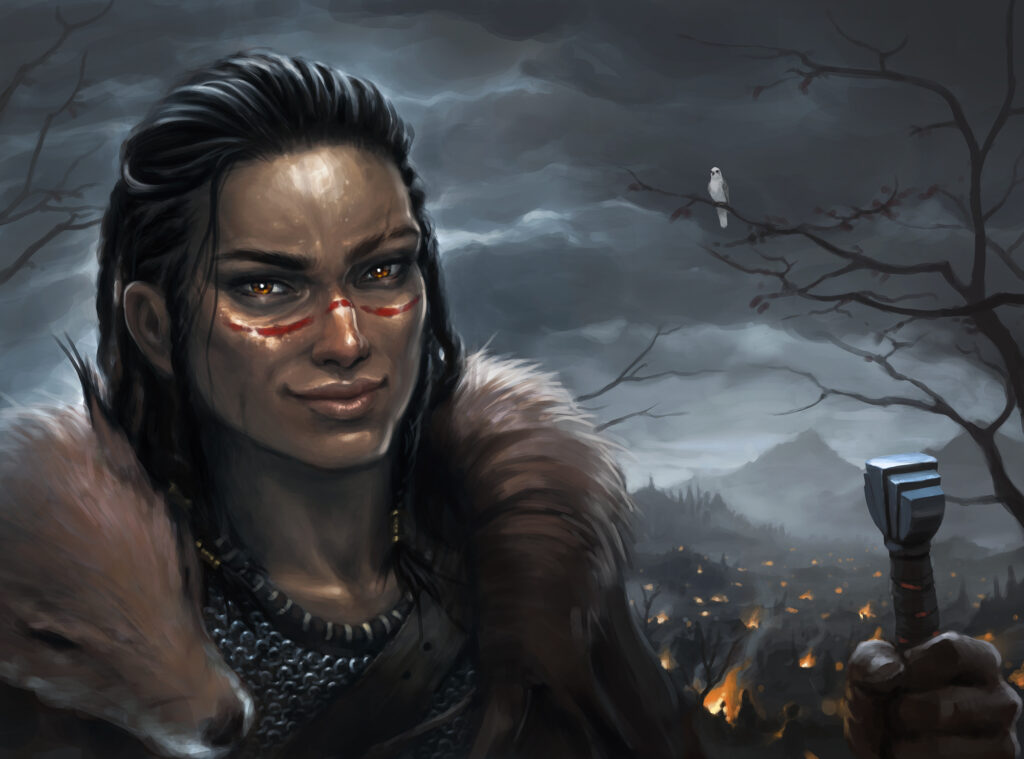
The necessity of revolution, and Baru’s corruption in her seeking of it, is a constant strain throughout the book.
On the Short Story
Reading it now – things have been changed. The naming of Aurdwynn rather than Pyre, from the Throne to Falcrest, Imperial Republic. In reading this short story for the first time (after reading the Baru Cormorant books) I was less than impressed; the prose was stilted, clunky, relied on exposition rather than the implication that makes Baru Cormorant so powerful. So much of the original story’s prose remains in the ending of the book – but so much more has been added, deepened, referring back to the events of the novel, sign and signifier, refrain worn beautiful by repetition.
On the Masquerade
Not quite fantasy, not quite science fiction; the breadth of cultures and civilisations from the very best of epic fantasies, but beautifully fresh; reimagined in black and brown bodies, transcending the cage of Medieval European inspiration to produce beautifully realised cultures that have no easy counterparts in Europe, Asia, Africa or the Middle East, but that echo the tensions of our own history – empire and colonialism, eugenics, racism, sexism, homophobia – but through a deliciously different lens. The isoamorous, the tribadist and the sodomite, the womanist and anti-mannist movements. Perhaps the deepest and most accurate fictional transformation of our history I have ever read, where the beats of scientific progress, revolution and counter-revolution, occur differently but with the same fundament, drawing from their very real basis in our own.
Too often, attempts to represent our world but ‘a bit to the left’ graft their altered features into new contexts, failing to understand or represent the societal and historical factors that produce those quirks of culture, rendering them strange but shallow, and ultimately unbelievable (the Stormlight Archives, I’m looking at you).
The epic treatise on morality and philosophy woven through the tale of Baru Cormorant is worth reading on its own, but the wealth of complex characters with their own histories, philosophies… deemphasised in the first book, as Baru learns to consider the people around her, Dickinson’s narrative expands to include more perspectives, and to flesh out a fanatically complex web of characters and connections and motivations.
There’s also some thrilling horror – never gratuitous, but revealing, unafraid of, refuses to flinch from the horrors and atrocities visited upon the world – most of which, again, echoing the events of history, and the horrors which our own histories tend to avoid.
Dickinson writes about the cost of revolution, whether evil actions can ever create good.
It’s almost allegorical.

